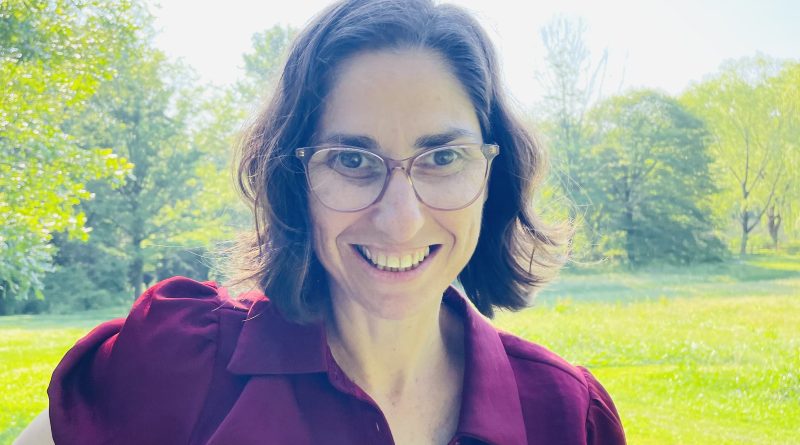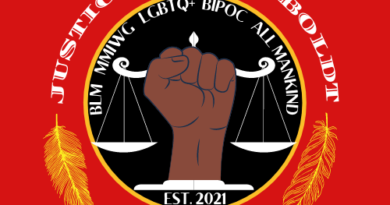Dana Lloyd: Decolonizing Sustainability Speaker Series at Cal Poly Humboldt Nov. 16
The final speaker taking part in the Decolonizing Sustainability Speaker Series this fall following Brittani Orona who spoke on Sept.14 and Kaitlin Reed who spoke on Oct. 12 is Dana Lloyd who will have her talk on Nov. 16. The in-person events will be at the Native American Forum room BSS 162 at Cal Poly Humboldt from 5 – 6:30 p.m.
“The speaker series is really designed to kind of interrogate the centrality of settler colonialism and white supremacy in a lot of American environmental movements, both historically and in the present,” said assistant Native American Studies professor and Traditional Ecological Knowledge (TEK) faculty fellow at Cal Poly Humboldt, Kaitlin Reed. She is the main organizer of the series and an enrolled member of the Yurok Tribe.
Dana Lloyd is an assistant professor of Global Interdisciplinary Studies at Villanova University. She is Israeli and Jewish, but considers the land she is from to be Palestinian. “I was very interested and cared a lot about Palestinian land rights,” Lloyd said.
Lloyd explained that once she started learning about how cases on land rights and religious freedom in the United States were a similar thread to Palestinian cases, she became very intrigued.
The subject of her talk is her book, “Land is Kin: Religious Freedom and Indigenous Sovereignty in the High Country.” It is centered around the 1988 Supreme Court case that “issued a decision in a case that’s called Lyng v. Northwest Indian Cemetery Protective Association, where the Yurok, Karuk and Tolowa Nations argued against a forest service plan to develop what they call the high country and the forest service calls the Six Rivers National Forest,” Lloyd said.
She argues that no Indigenous person used the language of property to describe their rights over the land; they just wanted the wilderness to be given respect and for themselves to be able to practice their rituals in an environment that was appropriate for that.
Lloyd explains that the competition for land is really about who has the power to decide what happens in this land. The Court is invested in letting the government decide what happens to land. With that said, Indigenous people were still able to protect Six Rivers National Forest, and it remains protected to this day.
“If we want to think about larger issues and how we protect land and what we do about such issues, how we think about the land is really important conceptually,” Lloyd said. “So, if we have an idea of Mother Earth, and we think that we have a kinship relationship with the land, it calls for a very different treatment of nature than if we think about it in terms of property.”




